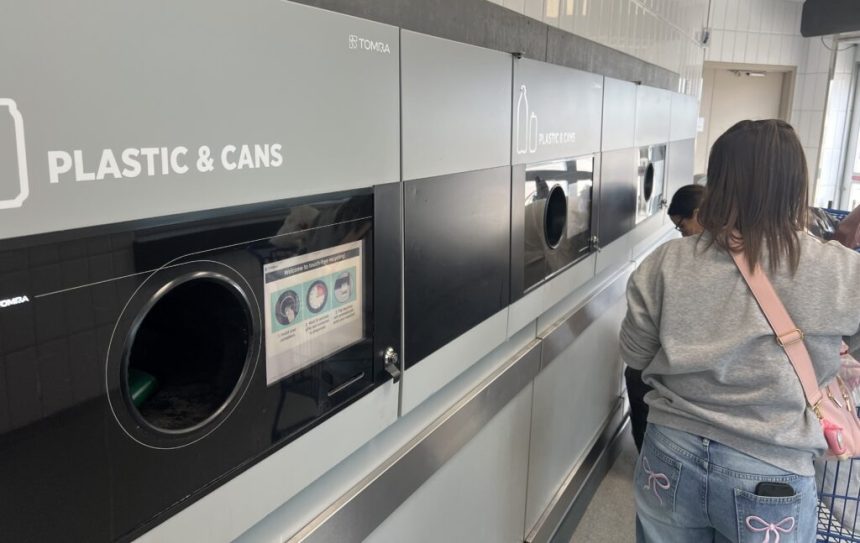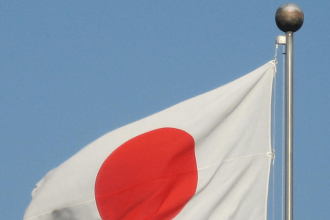Beverage container return area at Meijer in Howell. | Photo by Jon King/Michigan Advance
Members of the Michigan Beer and Wine Association and the Michigan Beverage Association sat before the House Regulatory Reform Committee on Thursday to make their case for a half-cent tax credit for each returnable bottle sold within the state.
The tax credit – proposed by state Rep. Angela Witwer’s (D-Delta Township) House Bill 4825 – could be claimed by beverage container distributors selling to dealers in Michigan.
Approved under a ballot initiative in 1976, Michigan’s bottle bill places a 10-cent deposit on containers for soft drinks, soda water, carbonated natural or mineral water or other non-alcoholic carbonated drinks; beer, ale or other malt drinks as well as mixed-wine and mixed-spirit drinks. When the container is returned to a retailer, the deposit is returned to the consumer.
After the container is returned, it falls to the distributor to pick up, transport, clean, process and recycle returnable containers, Witwer explained to the committee.
These distributors spend $60 million a year to operate the bottle bill on behalf of the state, Witwer said, and while stores receive some reimbursement for their participation, distributors do not.
Witwer said her bill aims to offset some of that cost.
Brett Visner, vice president of the Michigan Beer and Wine and Wholesalers explained that when the bottle bill was first adopted, any unclaimed deposits were directed to the distributors in order to fund their infrastructure.
However, the current law distributes the first $1 million in unclaimed deposits collected each year toward the Michigan State Police to support enforcement of the bottle bill until that fund reaches a maximum of $3 million. Then 75% of the following collections goes toward environmental cleanup, redevelopment and education on pollution prevention. The last 25% is returned to retailers.
“It’s an expensive, dirty business,” Visner said, explaining that the process of cleaning containers, shredding plastic, and crushing glass requires a tremendous amount of equipment and warehouse space.
Brett Visner, vice president of the Michigan Beer and Wine and Wholesalers, state Rep. Angela Witwer (D-Deltat Township) and Michigan Beverage Association President and CEO Derek Bajema testify before the House Committee on Regulatory Reform. Oct. 16, 2025. | Photo By Kyle Davidson/Michigan Advance.
While distributors have been without a regular avenue for reimbursement for years, Witwer’s plan offers consistent reimbursement that will help distributors plan for infrastructure costs alongside offsetting their cost of operations, Visner said.
The half-cent per container credit equates to roughly $20 million a year for all distributors, Visner said, though he noted that credit was based on the $60 million cost for operating the bottle bill, which has risen since the COVID-19 pandemic.
In response to a question from Rep. Angela Rigas (R-Caledonia), Visner explained that the half-cent credit was based on a previous 28.5% tax credit enacted in 2008 before it was eliminated in 2011.
This would provide Michigan beer and wine wholesalers with roughly $8 million, Visner explained, and while members would prefer full reimbursement, the association has been working to secure some form of reimbursement for several years.
The committee did not take votes on the bill at Thursday’s meeting.
The bill is tie-barred to Rep. Joseph Aragona’s (R-Clinton Township) House Bill 4823, which makes various changes to the Michigan Liquor Control Code.









